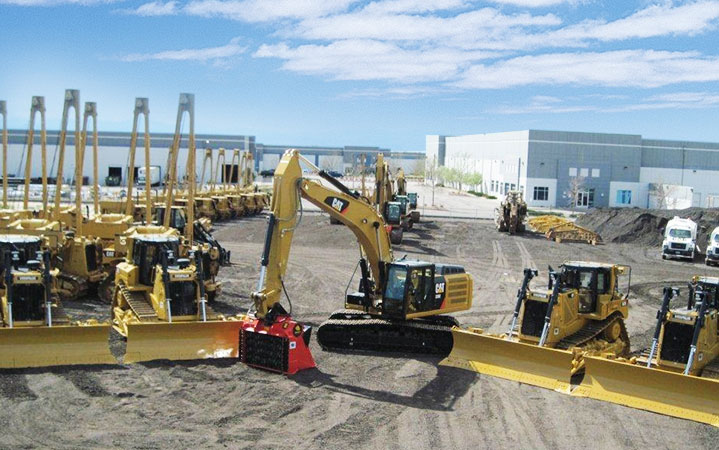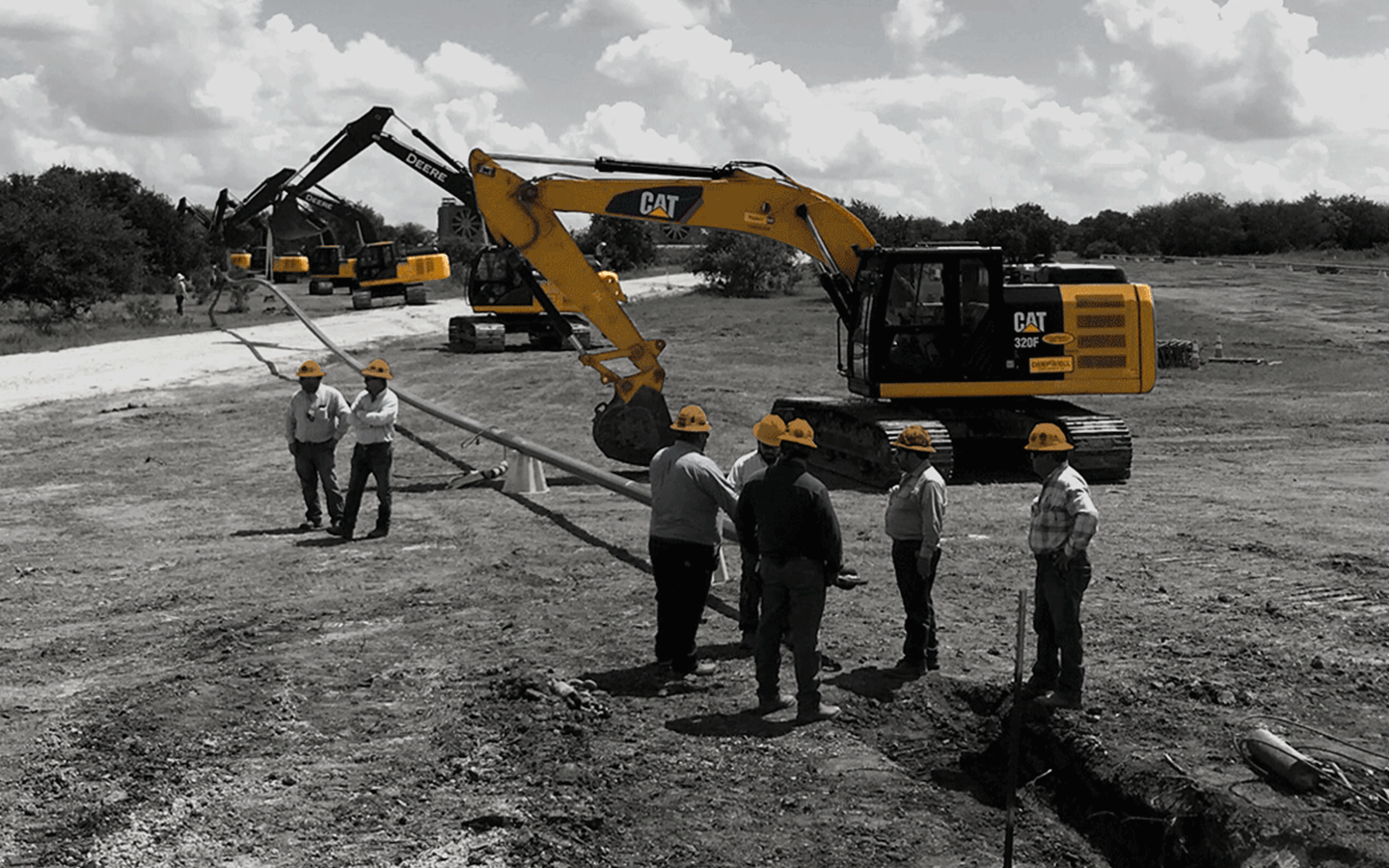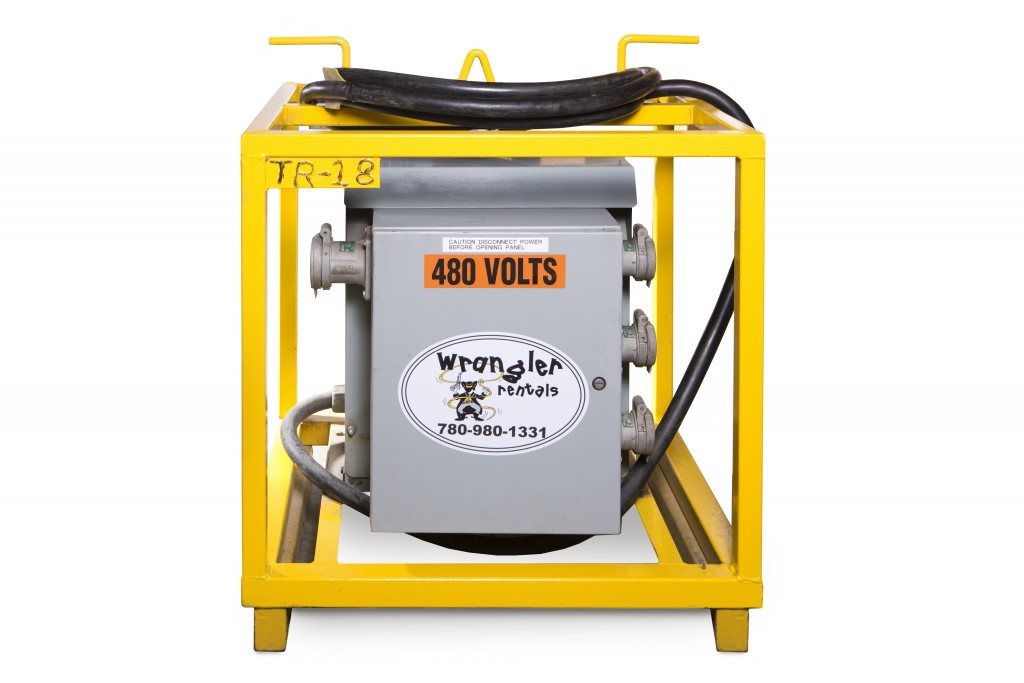Superior Oilfield Rentals oilfield: importance for drilling projects
Wiki Article
A Comprehensive Guide to the Various Kinds Of Oil Field Equipment and Pipeline Equipment Available
The oil and gas market relies heavily on specific devices for effective removal and transport. Various kinds of machinery, from piercing rigs to storage containers, play vital functions in this intricate process. Each item of tools offers distinct features that contribute to general operational success. Comprehending these elements is vital for any person involved in the market. As the market advances, so too do the modern technologies that support it. What innovations are on the horizon?
Drilling Rigs: The Foundation of Oil Exploration
Drilling rigs serve as the essential equipment in the domain name of oil expedition, allowing firms to accessibility hydrocarbon reserves buried deep below the Earth's surface area. These rigs come in different kinds, including land rigs, offshore rigs, and mobile systems, each designed to operate in specific atmospheres. Geared up with sophisticated modern technology, drilling rigs can penetrate geological developments with accuracy, making sure efficient resource removal. The architectural stability and operational abilities of these rigs are critical, as they must hold up against extreme problems and significant stress. The option of a drilling gear influences the overall job expense and timeline, making it an essential consideration for oil business seeking to maximize their expedition initiatives and optimize performance in their procedures.Pumps: Essential for Liquid Activity
In the oil removal procedure, the role of pumps is substantial, promoting the activity of fluids throughout different phases of production. Pumps are crucial for carrying petroleum, water, and various other fluids from below ground reservoirs to the surface area and afterwards through pipes to refineries. They come in different kinds, including centrifugal, positive displacement, and submersible pumps, each serving certain objectives based on the fluid qualities and operational requirements. Centrifugal pumps are generally utilized for their performance in high-flow applications, while favorable displacement pumps succeed in taking care of thick liquids. The choice of pump impacts overall effectiveness, operational safety and security, and upkeep costs. Correct option and upkeep of pumps are vital for maximizing manufacturing and lessening downtime in oil area operations.Shutoffs: Managing Circulation and Pressure

Shutoffs play a crucial function in managing the circulation and stress of liquids within oil fields and pipelines. Various sorts of valves serve unique applications, each designed to accomplish particular features basic for efficient operation - Superior rentals squeeze tools. Recognizing the characteristics and uses these shutoffs is essential for optimizing system efficiency and safety
Sorts of Valves
Crucial parts in oil field procedures, shutoffs play a crucial role in regulating the flow and stress of liquids within pipes and tools. Numerous sorts of valves are utilized to meet the varied demands of oil and gas production. Common types include gate valves, which give a straight-line circulation and very little stress decrease; world valves, understood for their throttling abilities; and round valves, recognized for their quick on/off control. In addition, check shutoffs stop backflow, while butterfly valves offer a light-weight service for managing flow. Each shutoff type is developed with details materials and configurations to withstand the extreme conditions frequently found in oil areas, making sure reliability and effectiveness in procedures. Recognizing these types is crucial for reliable system monitoring.Valve Applications and Features
While different sorts of valves serve distinct purposes, their main applications focus on managing circulation and pressure within oil and gas systems. Valves such as gateway, globe, and round shutoffs control liquid movement, guaranteeing peak efficiency and security. Gateway shutoffs are generally used for on/off control, giving minimal flow resistance. World valves, on the other hand, deal precise flow guideline, making them suitable for strangling applications. Round valves are preferred for their fast procedure and tight sealing abilities. In addition, stress safety valve are crucial for stopping system overpressure, securing devices stability. In general, the ideal selection and application of shutoffs improve operational performance, guaranteeing the reputable transport of oil and gas through pipelines and handling centers.Compressors: Enhancing Gas Transport
Compressors play an essential role in the efficient transportation of all-natural gas, making sure that it relocates smoothly via pipelines over fars away. These devices boost the pressure of natural gas, enabling it to get rid of rubbing and elevation modifications within the pipeline system. Furthermore, compressors promote the harmonizing of supply and need, suiting fluctuations in consumption and manufacturing rates. Various sorts of compressors are used in the sector, consisting of centrifugal, reciprocating, and rotating screw compressors, each offering unique advantages based upon the functional demands. Routine maintenance of these compressors is necessary to optimize performance and lessen downtime, eventually contributing to a reputable gas transportation network. Their essential feature highlights the value of compressors in the general oil and gas facilities.Storage Tanks: Safe and Effective Fluid Monitoring
Reliable transport of gas relies upon numerous sustaining systems, among which is the appropriate management of tank. These containers play an important function in safely consisting of fluids, guaranteeing that operational efficiency is kept while decreasing ecological dangers. Built from long lasting materials, they are developed to endure high pressures and corrosive elements. Effectively sized and purposefully located, tank help with the smooth flow of gas and various other fluids, preventing traffic jams in supply chains. Routine maintenance and monitoring are vital to discover leaks or structural concerns, promoting safety and conformity with regulatory requirements. Ultimately, the efficient management of storage tanks is critical for the general honesty and dependability of the oil and gas industry's fluid handling systems.
Pipeline Equipments: Framework for Transportation
Pipeline systems work as the foundation of the oil and gas market, promoting the reliable transport of hydrocarbons over vast distances. These systems contain numerous components, including pipes, shutoffs, pumps, and compressors, all thoroughly created to assure smooth flow. The products made use of in pipeline building, frequently steel or high-density polyethylene, are chosen for durability and resistance to corrosion. Pipeline networks can span throughout land and water, attaching production sites to refineries and distribution. Furthermore, advanced modern technology allows real-time tracking of circulation prices and stress degrees, boosting operational effectiveness. The tactical placement of these pipes reduces environmental influence while optimizing resource availability, therefore playing an essential role in conference power demands worldwide.Safety Equipment: Ensuring Worker and Environmental Management
The operation of pipeline systems, while necessary for energy transportation, also presents substantial safety and security obstacles for employees and the atmosphere. Safety tools plays a considerable function in mitigating these risks. Individual protective equipment (PPE) such as safety helmets, gloves, and non-slip footwear safeguards workers from physical dangers. Furthermore, gas discovery systems check for leakages, ensuring that unsafe materials do not posture a danger to workers or the bordering community. Emergency closure systems are imperative for swiftly stopping operations during a situation, stopping potential calamities. Spill containment materials, including absorbents and obstacles, are basic for decreasing ecological effect. Overall, buying comprehensive security equipment is crucial for maintaining functional honesty and shielding both employees and the atmosphere in the oil and gas market.
Frequently Asked Questions
How Do I Select the Right Oil Field Equipment for My Job?
Selecting the ideal oil area tools entails evaluating job specifications, spending plan constraints, and functional needs. Take into consideration variables such as equipment reliability, compatibility with existing systems, and the provider's credibility to guarantee peak performance and security.What Are the Maintenance Requirements for Oil Field Equipment?
Maintenance requirements for oil field equipment include normal evaluations, lubrication, and timely repair read more services. Operators needs to also adhere to producer standards, screen performance metrics, and guarantee conformity with security laws to boost durability and effectiveness.
How Can I Guarantee Compliance With Environmental Regulations?
To guarantee compliance with environmental laws, business have to conduct routine audits, apply best practices, purchase training, maintain correct documentation, and remain upgraded on regulations (Superior Rentals fusion machines). Partnership with environmental firms can additionally boost adherence to regulationsWhat Is the Typical Lifespan of Pipeline Equipment?
The ordinary life expectancy of pipeline equipment typically varies from 20 to 50 years, relying on elements such as worldly high quality, environmental conditions, and upkeep methods. Normal inspections can substantially affect long life and operational effectiveness.Exactly how Do I Safely Move Oil Field Equipment to Remote Locations?
Moving oil area devices to remote areas calls for cautious planning, including path analysis, safeguarding licenses, using suitable vehicles, and making certain safety and security methods are adhered to. Correct training and interaction among teams are essential for effective transportation.Report this wiki page